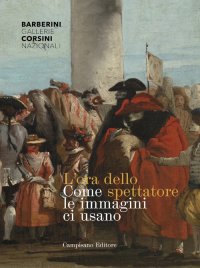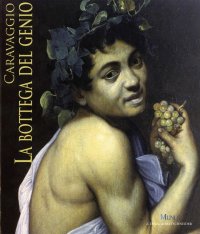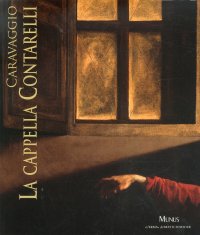L'ora dello spettatore. Come le immagini ci usano.
Edited by M. Di Monte and Gennari Santori F.
Roma, 2020; paperback, pp. 264, col. ill., cm 21x27.
cover price: € n.d.
|
Books included in the offer:
L'ora dello spettatore. Come le immagini ci usano.
Edited by M. Di Monte and Gennari Santori F.
Roma, 2020; paperback, pp. 264, col. ill., cm 21x27.
FREE (cover price: € n.d.)
Caravaggio. La Bottega del Genio
Roma, Museo Nazionale del Palazzo di Venezia - Sale Quattrocentesche, December 22, 2010 - May 29, 2011.
Edited by Falucci C.
Roma, 2010; paperback, pp. 118, b/w and col. ill., tavv., cm 24x28.
(Cataloghi Mostre. 49).
FREE (cover price: € 48.00)
Caravaggio. La Cappella Contarelli
Roma, Palazzo Venezia, March 10 - October 15, 2011.
Edited by M. Cardinali and De Ruggieri M. B.
Roma, 2011; paperback, pp. 150, 60 b/w ill., 60 col. ill., 60 b/w plates, col. plates, cm 24x28.
(Cataloghi Mostre. 50).
FREE (cover price: € 59.00)
Reversibility. A theater of de-creation
Mousse Publishing
English and French Text.
Milano, 2013; paperback, pp. 182, ill., cm 30x21.
ISBN: 88-6749-038-9 - EAN13: 9788867490387
Subject: Collections,Essays (Art or Architecture),Graphic Arts (Prints, Drawings, Engravings, Miniatures)
Period: 1960- Contemporary Period
Languages: 

Weight: 0.5 kg
Published at the conclusion of a cycle of exhibitions that took place over the course of four years, the catalogue Reversibility: A Theater of De-Creation gathers documents and reports of a fragmentary nature, as well as the epistolary exchanges among the participants in the project, selected by Pierre Bal-Blanc, curator of CAC Brétigny and editor of the volume.











